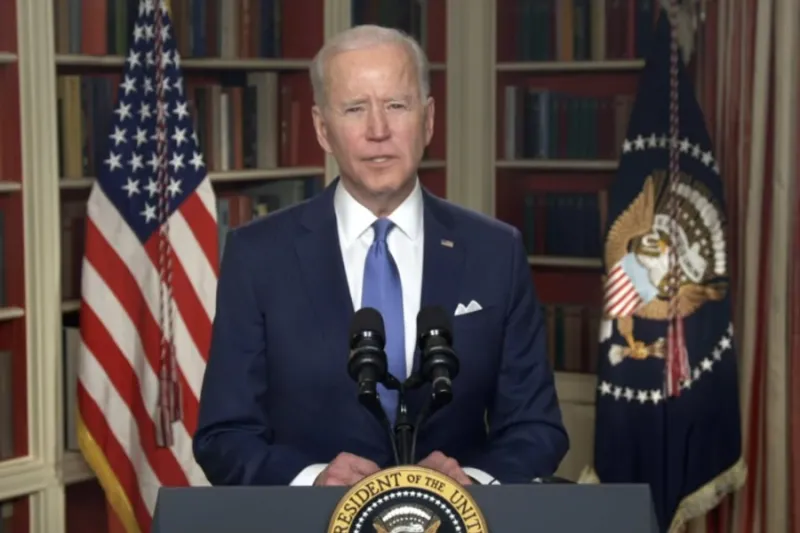
Washington D.C., Jun 18, 2021 / 20:15 pm (CNA).
On Friday, US President Joe Biden was asked about a “resolution” of the U.S. bishops to deny him and other pro-abortion politicians Communion – even though their vote this week was on drafting the teaching document, not any national policy of denying Communion.
“That’s a private matter and I don’t think that is going to happen,” Biden said.
The U.S. bishops held their annual spring general assembly this week. The bishops debated drafting a document on the Eucharist, which would include a sub-section on “Eucharistic coherence,” or worthiness to receive Communion.
#BREAKING | President Biden was asked about the Catholic bishops’ decision to develop a document on the Eucharist, which could prevent pro-abortion politicians from receiving communion.
He responds: “That’s a private matter, and I don’t think that’s going to happen.” #USCCB21 pic.twitter.com/Dq2T2LYEfn— EWTN News (@EWTNews) June 18, 2021
In a proposed outline of the document, the bishops’ doctrine committee cited the special need for Catholic public officials to uphold Church teaching in public life.
Biden, who is the second Catholic US president, has pushed for taxpayer-funded abortion while his administration seeks to deregulate medical abortions and to fund international pro-abortion groups.
On the 48th anniversary of the US Supreme Court’s 1973 Roe v. Wade decision that legalized abortion nationwide, Biden and Vice President Kamala Harris issued a statement supporting Roe and stating their intent to codify it in law.
Biden repealed the Mexico City Policy, an executive policy that bars U.S. funding of foreign NGOs that provide or promote abortions.
In domestic abortion policy, Biden moved to allow for federal funding of elective abortions by introducing his budget request for the 2022 fiscal year without the Hyde amendment. That policy, enacted in law since 1976 as a rider to budget bills, prohibited federal funding of most elective abortions in Medicaid.
Gaudium et spes, Vatican II’s 1965 constitution on the Church in the modern world, said that “from the moment of its conception life must be guarded with the greatest care while abortion and infanticide are unspeakable crimes.”
The Congregation for the Doctrine of the Faith issued a doctrinal note in 2002 on participation of Catholics in political life. The document stressed the need for Catholics to adhere to Church teaching, especially on grave issues such as abortion and euthanasia.
Cardinal Luis Ladaria, prefect of the CDF, cited the note in his letter to the U.S. bishops in May on the matter of Communion for Catholic public officials who support permissive legislation on grave evils.
In October 2019, while campaigning for president, Joe Biden was denied Communion at a parish in the Diocese of Charleston. A Charleston diocesan policy, which is also that of the Archdiocese of Atlanta and the Diocese of Charlotte, states that “Catholic public officials who consistently support abortion on demand are cooperating with evil in a public manner. By supporting pro-abortion legislation they participate in manifest grave sin, a condition which excludes them from admission to Holy Communion as long as they persist in the pro-abortion stance.”
If you value the news and views Catholic World Report provides, please consider donating to support our efforts. Your contribution will help us continue to make CWR available to all readers worldwide for free, without a subscription. Thank you for your generosity!
Click here for more information on donating to CWR. Click here to sign up for our newsletter.




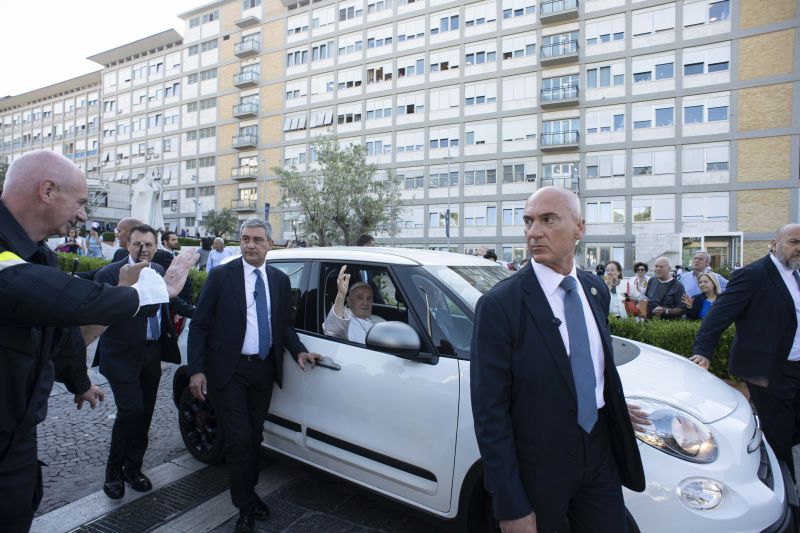
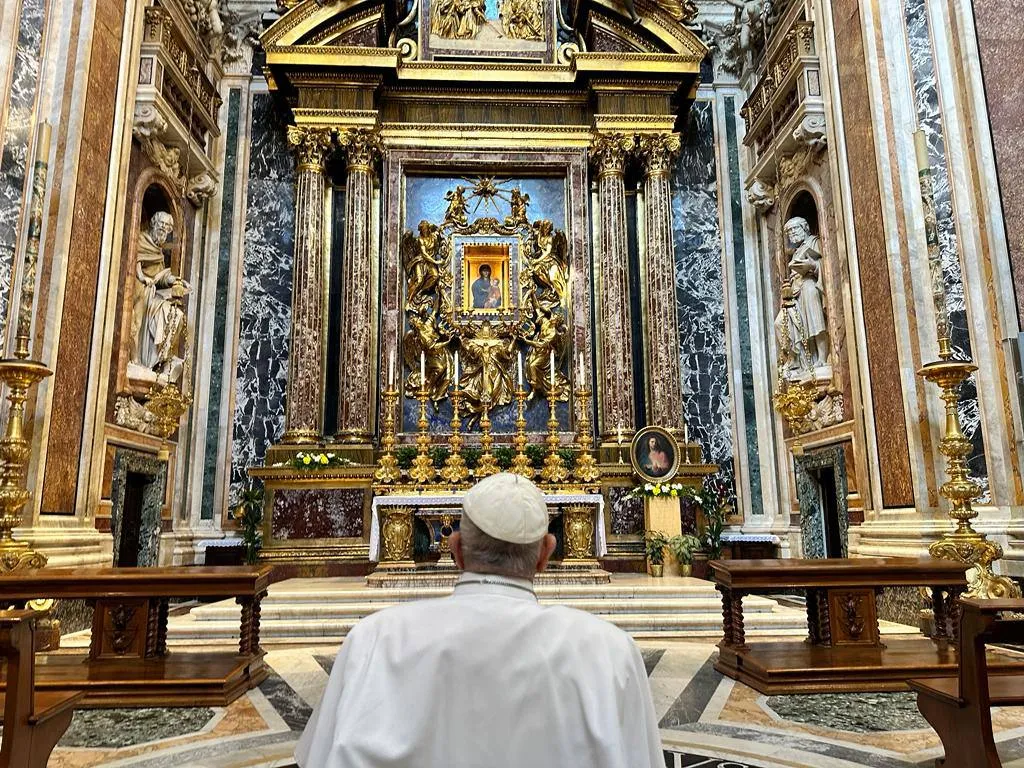
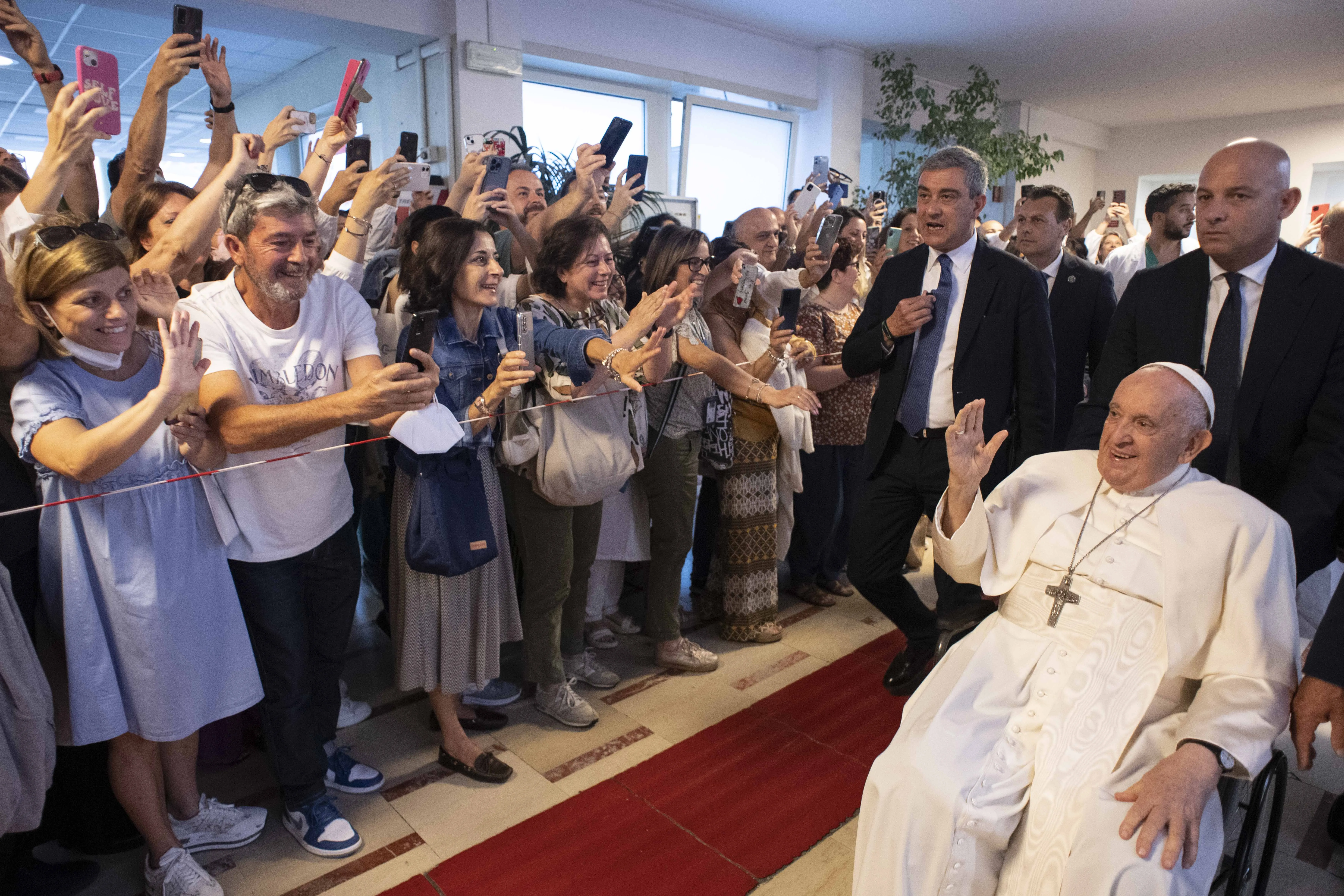
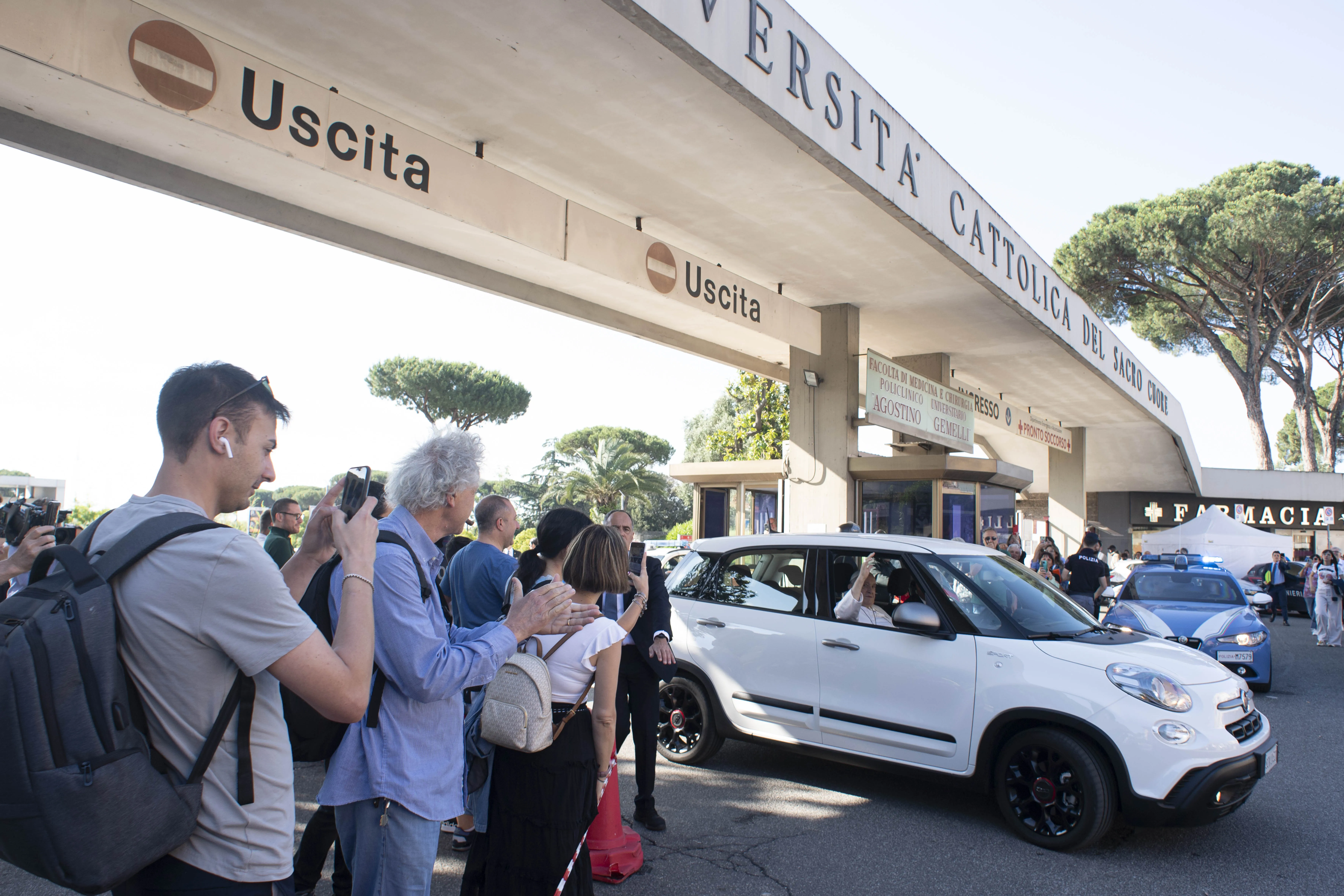
Another door-stop USCCB document on “Eucharistic coherence” with page after page of pious blather that a 2nd grader preparing for First Communion could summarize in a simple declarative sentence completely misses the point. Biden is a heretic and is already excommunicated latae sententiae. The bishops need to declare Biden’s excommunication formally and publicly and then proceed down the line from there. U.S. Catholics have had enough. Actions, not words, are what is demanded.
Problem is this action would not only apply to Biden. It would apply to millions of Catholics, who might stop coming to church and no longer financially supporting the church. Then the church could face a dilemma. How important is money?
Also this could lead to schism. Do we really want another of these? Maybe some do.
Valid points, but maybe a spiritual housecleaning is necessary at this point. Better to have a smaller, faithful Church than a morally and spiritually corrupted larger body.
At least those “millions of Catholics” will have ceased committing sacrilege by receiving Holy Communion in a state of mortal sin.
John 6:66
Great Expectations. Biden’s expectation [a shameless excerpt from a previous comment] has an imperious tone, solemnly urging the Church to desist from its faithful practice, refusing what’s owed him over a mere trifle, a predisposed approval of the murder of approx 70 million innocents since 1973. The president lives in a world bereft of “rules”, except his own, with license presumptuously due to separation of Church and State. He recently shouted, arms flailing, that he’s made far greater radical change to our Nation than any predecessor. Destructive changes to timeless moral doctrine on life, family, and sexuality. An infant in the womb is in greater danger during his administration than at any time in history. What’s at stake for the Church isn’t political expediency. Nor maintaining order and cohesion. Neither is separation of Church and State at issue. Rather it’s the foundation of a just society in which religious freedom and the right to uphold its values. Values that are the source of that foundation for justice.
“An infant in the womb is in greater danger during his administration than at any time in history.”
Well said.
I think we can have a pretty good idea of the bishops who supported going forward on the document, if we’ve been following this story. Several bishops have come forward, besides Cordileone and others who have been forthright thus far.
“Hope springs eternal . . .”
So are we going to deny communion to those Catholic politicians advocating the death penalty?
While on this path what about those who campaigned for sending US troops to Iraq?
Oh, please. Support for abortion, “gay marriage”, and trans-sexualism is different, in kind and degree, from prudential judgments re: capital punishment and national defense.
Oh, please, the invasion of Iraq had nothing to do with national defence. It was an act of un godly evil, in every respect it was a murderous pursuit! And one can argue that prudential judgements as applied to capitol punishment can also apply to the issue of Abortion. It is my personal position that I am against abortion, full stop. However to what degree or extent, in a democratic republic where there is the separation of church and state, can I insist that an other, who does not share my faith in Jesus, be beholden to a law that may be against the wishes of a voting majority who are non christian?
The answer you seek is no, because as the court of the Pontiff Francis has reluctantly implied by its “eloquent ambiguity,” (to quote one apologist) the death penalty cannot be declared immoral.
This is as compared to abortion, fornication, sodomy, false witness and idolatry, which, among other things, remain mortal sins.
I have no academic qualifications in Ethics unlike Mr Weigel but a quick look at the Wikipedia page on the subject states:
[ In ethics, a “prudential judgment” is one where the circumstances must be weighed to determine the correct action. Generally, it applies to situations where two people could weigh the circumstances differently and ethically come to different conclusions.
For instance, in the theory of just war, the government of a nation must weigh whether the harms they suffer are more than the harms that would be produced by their going to war against another nation that is harming them; the decision whether to go to war is therefore a prudential judgment.]
Mr Weigel, an author and academically qualified ethicist who has written extensively on the subject of Just War Theory was a signatory to the Project For a New American Centurary’s Statement of Principals, accompanied by the political elite of the Bush administration. His support for invasion of Iraq is on record, in effect a Catholic blessing of this act of war: https://www.americamagazine.org/issue/428/article/just-war-case-war
Why is Mr Weigle, a celebrated contributor of articles to CWR not the subject of serious discourse with respect to the sanctity of life?
One could mount an argument that he should be denied communion!
An ordinary and commonplace and “private thing,” says the hollow-suited and sleepwalking occupier of the White House…
When Hannah Arendt interviewed Adolf Eichmann, the captured overseer of Hitler’s “final solution” to the Jews, she found him to be “quite ordinary, commonplace, and something neither demonic nor monstrous” (Eichman in Jerusalem: A Report on the Banality of Evil, 1964).
Biden has frequently said that he personally opposes abortion but that he “won’t impose his beliefs on anyone else”, or some such blather.
Mr. President – we’re not asking you to do that, we are merely asking you to DEFEND what you say your beliefs are, and there is NO sign that you have any intention to do so.